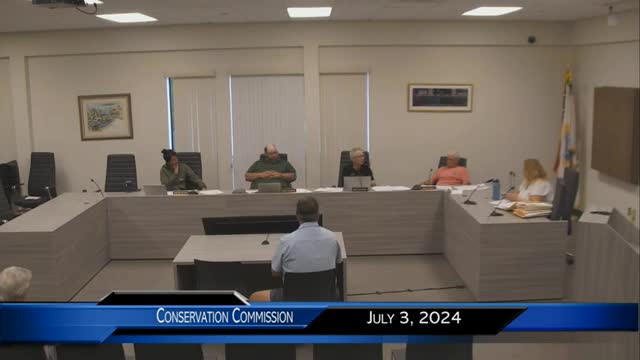Residents Rally Against Commercial Development in Quiet Neighborhood
July 04, 2024 | Town of Harwich, Barnstable County, Massachusetts

This article was created by AI summarizing key points discussed. AI makes mistakes, so for full details and context, please refer to the video of the full meeting. Please report any errors so we can fix them. Report an error »

During a recent government meeting, discussions centered on the implications of a proposed seawall project in Harwich, Massachusetts, which has raised concerns among local residents about potential commercial development in a predominantly residential area.
The meeting highlighted the need to evaluate current environmental conditions against historical permits, particularly Chapter 91, which governs waterfront development. Officials emphasized the importance of considering the impact of the seawall on local ecosystems, including salt marshes and shellfish habitats. The conversation underscored the responsibility of property owners to maintain or remove structures under existing permits, with the potential consequences of inaction leading to further environmental degradation.
Frank Doyle, a long-time resident, voiced concerns on behalf of several neighbors regarding the commercial nature of the proposed project. He described the first phase of the plan as a replacement of a deteriorating bulkhead, but warned that subsequent phases could lead to significant commercial operations, including the dredging of a basin for aquaculture. Doyle argued that such developments could disrupt the residential character of the neighborhood and lead to a substantial increase in commercial activity, potentially generating millions in revenue.
While the commission acknowledged the residents' concerns, they clarified that their mandate is to assess the project based on environmental regulations rather than neighborhood dynamics. They indicated that any future requests for dredging or additional commercial activities would also be subject to scrutiny under the relevant environmental laws.
The meeting concluded with a commitment to further discussions between residents and the project proponents, aiming to find a middle ground that addresses both environmental and community concerns. The commission plans to reconvene in August to continue evaluating the project and its implications for the local ecosystem and community.
The meeting highlighted the need to evaluate current environmental conditions against historical permits, particularly Chapter 91, which governs waterfront development. Officials emphasized the importance of considering the impact of the seawall on local ecosystems, including salt marshes and shellfish habitats. The conversation underscored the responsibility of property owners to maintain or remove structures under existing permits, with the potential consequences of inaction leading to further environmental degradation.
Frank Doyle, a long-time resident, voiced concerns on behalf of several neighbors regarding the commercial nature of the proposed project. He described the first phase of the plan as a replacement of a deteriorating bulkhead, but warned that subsequent phases could lead to significant commercial operations, including the dredging of a basin for aquaculture. Doyle argued that such developments could disrupt the residential character of the neighborhood and lead to a substantial increase in commercial activity, potentially generating millions in revenue.
While the commission acknowledged the residents' concerns, they clarified that their mandate is to assess the project based on environmental regulations rather than neighborhood dynamics. They indicated that any future requests for dredging or additional commercial activities would also be subject to scrutiny under the relevant environmental laws.
The meeting concluded with a commitment to further discussions between residents and the project proponents, aiming to find a middle ground that addresses both environmental and community concerns. The commission plans to reconvene in August to continue evaluating the project and its implications for the local ecosystem and community.
View full meeting
This article is based on a recent meeting—watch the full video and explore the complete transcript for deeper insights into the discussion.
View full meeting
